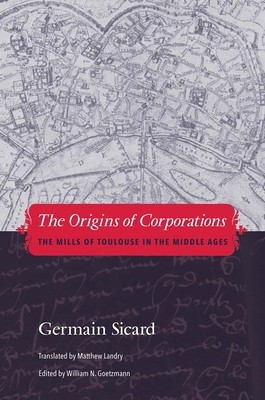
- We will send in 10–14 business days.
- Author: Germain Sicard
- Publisher: Yale University Press
- ISBN-10: 0300156480
- ISBN-13: 9780300156485
- Format: 15.8 x 23.6 x 3.6 cm, hardcover
- Language: English
- SAVE -10% with code: EXTRA
Reviews
Description
Fully modern corporations appeared in fourteenth-century Toulouse, much earlier than previously believed Germain Sicard proves that Europe's first corporations were fourteenth-century mill companies operating in Toulouse, rather than seventeenth-century English and Dutch trading companies as commonly believed. He shows that the corporate form derives from a unique ownership contract from Medieval Europe called pariage, and a culture of strong property rights and municipal self-governance. Based on archival research, Sicard's 1952 thesis has been translated into English with an introduction that places the work in the context of new institutional economics and legal theory. It is an important contribution to research on the history and legal origins of the corporation.EXTRA 10 % discount with code: EXTRA
The promotion ends in 12d.04:28:36
The discount code is valid when purchasing from 10 €. Discounts do not stack.
- Author: Germain Sicard
- Publisher: Yale University Press
- ISBN-10: 0300156480
- ISBN-13: 9780300156485
- Format: 15.8 x 23.6 x 3.6 cm, hardcover
- Language: English English


Reviews